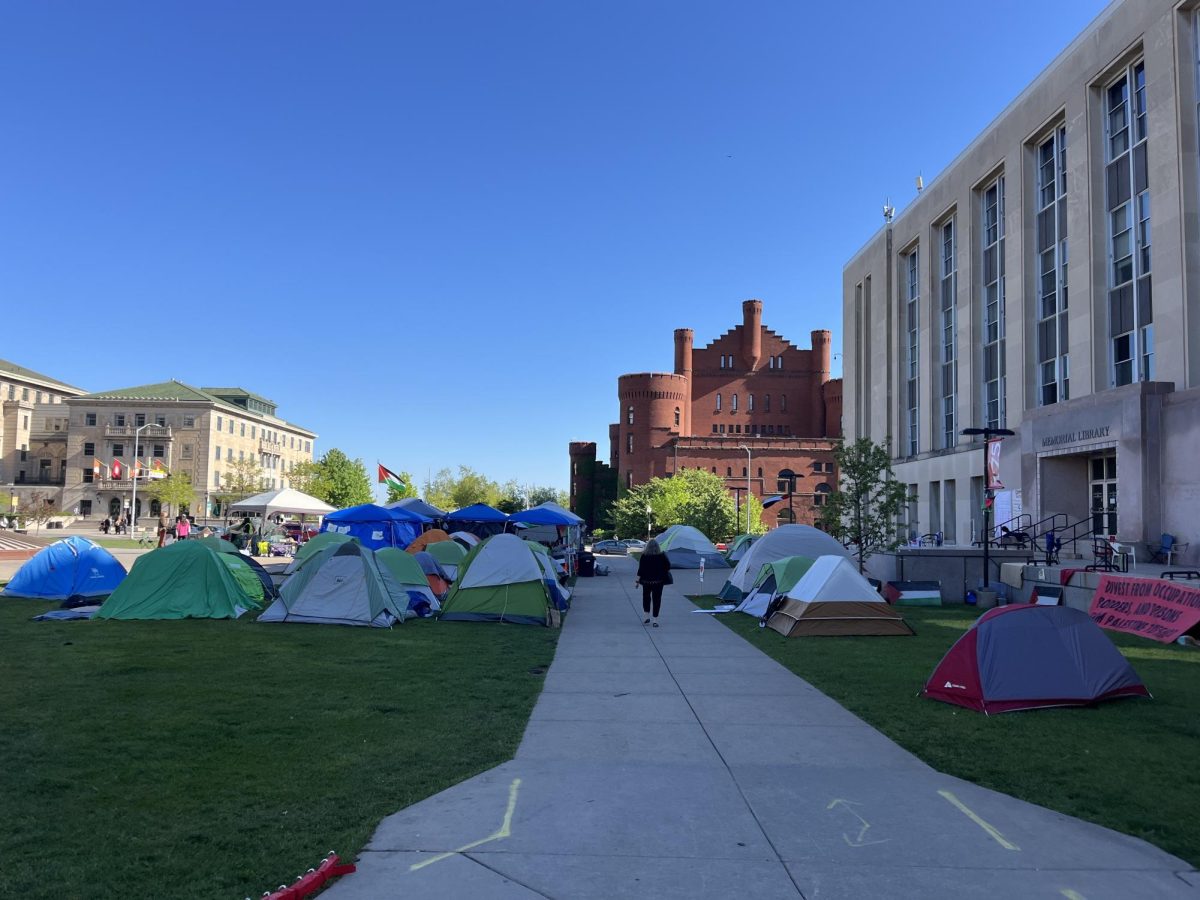Following the largest ever University of Wisconsin System budget cut of $250 million, the Board of Regents has approved a budgetary request that would up tuition by 4.3 percent for the 2005-2007 biennium.
That increase would be coupled with a 7.2 increase in state support.
Gov. Jim Doyle will present the plan and his recommendations to the legislature at the start of the new year.
Katharine C. Lyall, former UW System president, said in an exclusive interview that the “final tuition that comes out of this” is likely to differ from the original numbers.
System officials expect the budget plan, which would seek a yearly average increase of $105.8 million in state tax dollars and student fees, will benefit students in many ways.
“This is a budget built around student access and success,” said Kevin Reilly, new UW System president, in a news release. “It represents access for lower-income students, access for returning adult students, access to quality faculty and staff, access to libraries and technology and access to better-paying jobs for graduates.”
But others, like former Regent Nino Amato, feel Wisconsin higher education is continuing to take a hard hit.
Amato believes freezing tuition will make higher education more accessible.
“Other states are moving aggressively to lower costs but Wisconsin is moving backward,” he said in an exclusive interview. “The university was built for all citizens. This is really back-door privatization.”
A number of schools nationwide are allowing students to freeze tuition costs until graduation.
This fall, freshmen entering any Illinois state school will only face a one-time jump in tuition, according to the Wall Street Journal.
In this new program, universities will issue an estimate of how much costs will increase and freeze tuition for the four years each student is expected to attend.
In exchange for the state’s promise not to cut higher-education funding, Michigan state schools have agreed to limit tuition increases to the rate of inflation, the Wall Street Journal reported.
Richard Vedder, an economics professor at Ohio University, is the author of a book titled “Going Broke by Degree: Why College Costs Too Much.”
He believes budget cuts are not the only reason college has become so expensive. Inefficiency is a big part of the problem, he said.
“Colleges have no internal incentive that disciplines them to be very efficient,” Vedder said. “Colleges have no bottom line. It’s hard to know when universities have a good year. When you can’t measure that you can’t be efficient.”
Vedder sees the Illinois approach to raising tuition as an attempt to provide certainty to students and their families. But he does not think it solves the problem of high costs.
“What has been really bad is people enter college expecting small increases and the 10 to 15 percent increases at some schools are creating some real hardships,” he said.
He believes the Michigan approach is legitimate and he anticipates more colleges will follow that example.
Some states have mandated maximum tuition caps, Vedder said. While he does not think they have been effective, he said it “forces universities to rethink the way they do things.”
Recent studies have shown colleges are spending less on undergraduates and spending more on research, student activities and buildings, Vedder said.
“Universities have vast administrative bureaucracies. Most universities have more administrators than faculty,” he said, noting the government mandates some of the jobs. He believes most of financial problems are self-inflicted, however. While having more administrators and fancier buildings is nice, Vedder said he does not think it is critical.
Amato agrees there are inefficiencies within the university system.
“Everyone is competing to be the top research institution,” he said. “It’s an escalating war between the top 10 universities at the expense of raising tuition.”
Vedder believes if tuition at public universities continues to go up, students will look at other options, including online courses and foreign universities.
He also thinks more schools are going to become private.
The University of Virginia has already privatized its business school. The University of Colorado-Boulder has been toying with the idea of privatization.
Amato said he believes some regents would like UW to become private.
“Public higher education is an investment in citizens, the future and the economy,” he said. “The state needs to invest in education.”
He also said as the number of people with college degrees increases, the state’s per-capita income — currently below the national average — will rise.
Vedder said public university enrollment has fallen in the last five years as a percent of total university enrollment.










